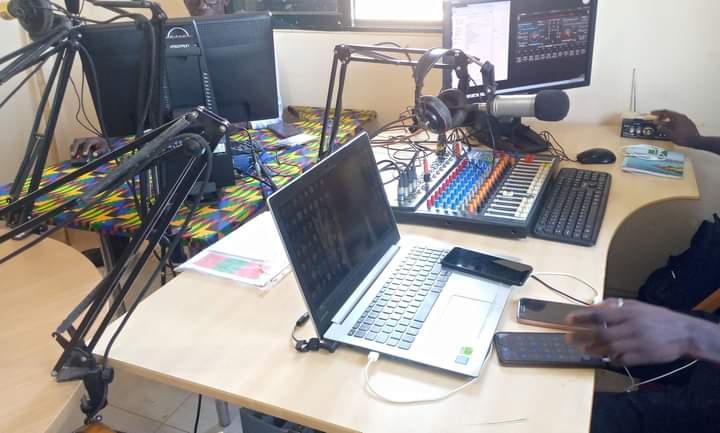New York, April 27, 2023–Authorities in Guinea-Bissau should immediately allow the privately owned Radio Capital FM back on air and not use the late payment of license fees as a pretext to silence a critical media outlet, the Committee to Protect Journalists said Thursday.
In a January 9 letter, the Ministry of Media ordered Radio Capital FM to cease broadcasting immediately as it had failed to pay outstanding license fees by the deadline set by the government, Lassana Cassamá, the outlet’s owner and director, told CPJ by messaging app.
The ministry issued a deadline in April 2022 to dozens of broadcasters in the country, including Radio Capital FM, to settle their arrears or have their licenses revoked.
Radio Capital FM is the only outlet to have its license revoked and has been ordered to apply for a new license – which it is not guaranteed to be granted – under a public tender process, details of which have yet to be made public, according to Cassamá and Bubacar Turé, the vice-president of Guinea-Bissau’s non-profit Human Rights League (LDHGB), who spoke to CPJ by phone.
Radio Capital FM is a critical outlet that covers politics and social issues, according to CPJ’s review. The station is no longer available on the FM broadcast frequency, although it has resumed regular broadcasting on Facebook.
“The government’s revoking of Radio Capital FM’s broadcasting license on the grounds that it failed to pay outstanding fees on time is a convenient excuse to silence a popular media outlet that is critical of the government ahead of the June 4 legislative elections,” said Angela Quintal, CPJ Africa program coordinator, in New York. “Authorities must allow Radio Capital FM to resume broadcasting immediately and avoid imposing a nebulous public tender process as a form of censorship.”
Indira Baldé, president of the national journalists union SINJOTECS, told CPJ via messaging app that Radio Capital FM was being “unjustifiably singled out because of its critical reporting,” and in a statement urged Guinean citizens to question why the station was silenced.
Turé said authorities wanted to “muzzle” Radio Capital FM “because the government does not like its work” and is trying to limit public debate.
Mamadu Djaló, the general inspector for the Ministry of Media, denied that Radio Capital FM had been singled out. “Capital knows what it did,” he told CPJ by phone, adding that all radio stations that had failed to pay outstanding license fees by the deadline would need to tender for a new license.
Media Minister Fernando Mendonça told CPJ by phone that Radio Capital FM had only itself to blame for “blatantly ignoring the law and seeking preferential treatment” when all other broadcasters had paid or negotiated a payment plan.
Cassamá said Radio Capital FM management twice sought a meeting with Mendonça to explain that their outlet had been attacked twice by armed men who destroyed their equipment – once in 2020 and again in 2022 — and the station did not have funds to pay the fees, but they did not receive a response. On October 10, 2022, management again wrote to the minister asking for a meeting and was told to speak to Djaló instead, Cassamá said, adding that he could not recall the date of this meeting, but said Djaló simply told them to “pay up.”
On October 13, Radio Capital FM paid 1 million CFA francs (US$1,677) for four years of outstanding fees and again asked to be allowed to broadcast, Cassamá said.
The authorities sent an October 18 letter, reviewed by CPJ, saying that the station’s broadcast license was revoked for failure to pay the fees on time and because it had broadcast without permission in September and October, Cassamá said. The letter also accused the outlet of failing to inform the ministry that it had moved premises after the February 2022 attack and repeated that the outlet would have to apply for a new license.
Cassamá told CPJ that Radio Capital FM had broadcast music in September 2022 to attract advertising revenue and had only resumed its regular programming on January 2, 2023, in the hope that there would be a change of heart from the government.
